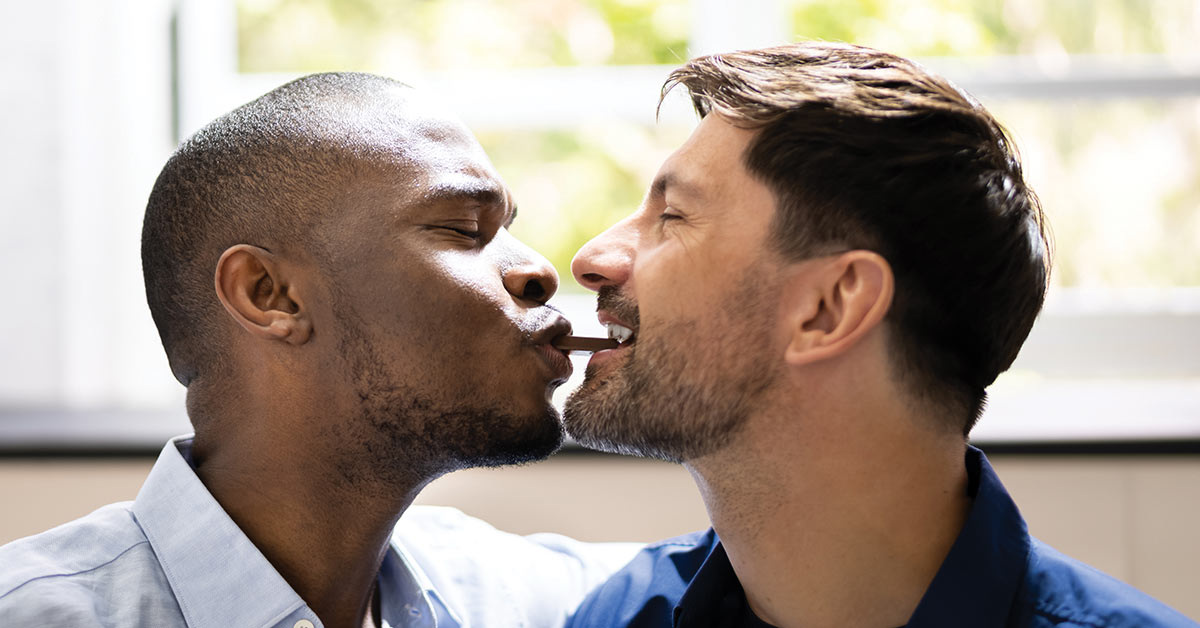Queer relationships: The importance of communication

“Good communication is the key to having a fulfilling relationship.” We hear it time and again, but still often don’t heed the advice to pay special attention to the way we communicate in romantic relationships.
In fact, one study done by The Gay Men’s Health Project found that 51% of the participants surveyed cited that they broke up with someone because they grew apart, mainly due to the fact that they stopped communicating.
While talking to someone may seem like the simplest thing in the world – we do it all the time – good communication extends far beyond simply stating facts and opinions verbally. In fact, the word “communication” has the Latin root communicare, which means “to share” or “to be in relation with”.
Experts agree that good and effective communication means that people not only clearly express themselves to those around them, but also know how to actively listen.
Communicating effectively with a romantic partner is, at its core, an exercise in sharing and relating while being able to clearly express our thoughts and needs and, at the same time, practicing the cardinal skill of active listening.
What is active listening?
A mainstay of excellent communicators everywhere, active listening is a technique that helps to ensure that we don’t simply listen to reply, but rather to understand.
Whereas hearing is often a passive exercise, active listening entails utilising things like verbal and nonverbal feedback – like eye contact, mirroring, leaning in and vocal acknowledgement – to signal that we are, indeed, paying attention to what is being said.
Active listeners ask questions, gain clarification and reflect back what is said, but take care not to be judgmental, instead adopting a neutral stance about what the speaker is saying. They don’t jump in and claim the floor once a pause is long enough to do so, and try to understand the entire message that is being communicated – not just the individual words and sentences.
Tips for good communication in romantic relationships
Being a good communicator benefits us in just about every sphere of our lives, but is of particular importance if we want to make an effort to understand our romantic partners. Here are a few ways in which you can up your communication game and reap the benefits of a relationship where every partner is heard.
• Dedicate time to talking: Setting aside time to discuss the relationship or issues related to it is important, as this ensures that these conversations aren’t rushed or undertaken when either partner has to focus on something else.
• Don’t assume you or they are telepathic: None of us are mind readers, and we shouldn’t presume to be. If you aren’t sure what your partner is feeling, ask them – and express your feelings clearly and without cryptic hints as to what may be bothering you.
• Pay attention to nonverbal cues: The tone and attitude we use when we talk speaks volumes. Try not to just hear the words that are being said, but to listen to how they are being said, too. If you ask your partner how their day was and they say “fine” but don’t sound fine, ask more questions.
• Ask open-ended questions: If all you’re hearing or saying is “yes” and “no”, you won’t be able to truly get to know a partner or have them learn more about you. Opting for “How has your day been?” instead of “Have you had a good day?” will open the door to richer conversations that contribute to the way you understand your partner’s life and needs.
If a fulfilling and honest relationship is what you’re after, communication needs to take top priority. Make these tips a part of your daily communication toolbox, and see the ways in which your relationship is enriched.
If that is not the case and your conversations reveal significant flaws in the relationship, good communication will mean parting ways in an amicable manner, with both parties fully understanding why the relationship is ending and what has been gained from being together.
Ultimately, beating around the bush in romantic couplings is simply not worth the emotional turmoil it often leads to.
Leave a Reply